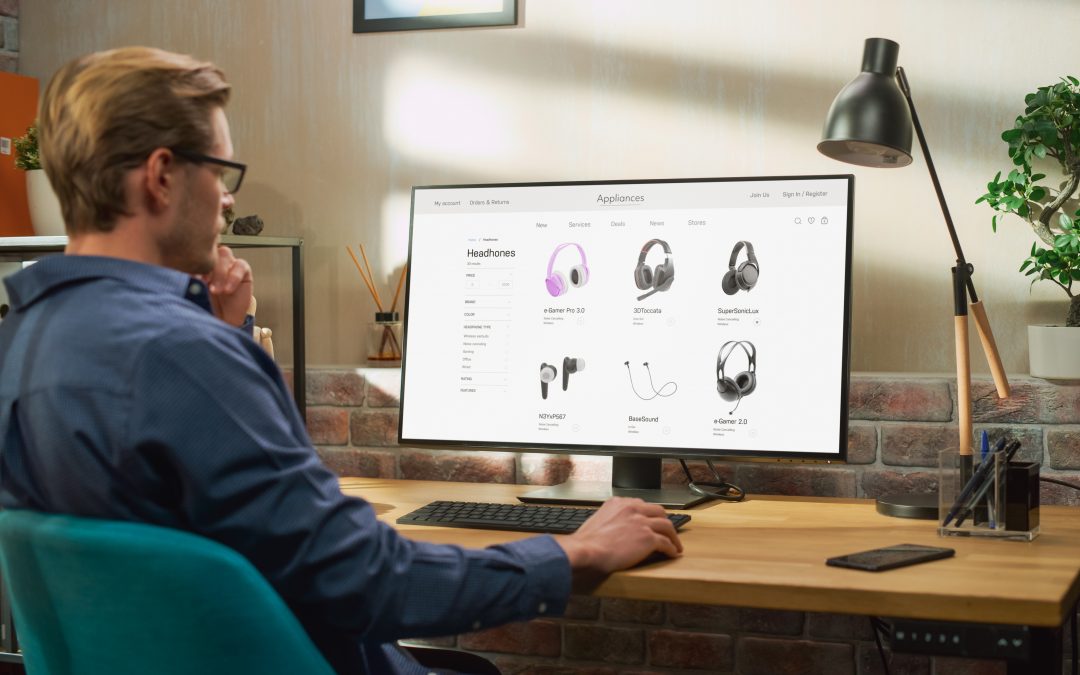How to optimize online sales with a hybrid product recommendation
New research from the University of Florida highlights how retailers can increase sales by 3% if they show customers products from previous browsing sessions.
When you search for products online, one of the ways in which retailers return results is through collaborative filters (CF), an algorithmic product recommendation system. Also known as “wisdom of the crowd” recommendations, CF systems are used to optimize website sales by inferring what a consumer would like based on other consumers’ revealed preferences on the website.
On a focal product’s webpage, the CF systems recommend those products that most consumers on the website view or purchase with the focal product. For example, if you searched for coffee pots on Target’s website, you’ll see results that are based on what other customers have browsed or purchased.
However, these systems do not factor in individual consumers’ past browsing behavior in the recommendation algorithm. On the one hand, the personal browsing data of consumers may accurately capture their preferences. On the other hand, showing products a consumer has already seen may not be informative to them. Thus, it is unclear whether including personal browsing data in the recommendations is helpful to consumers when deciding on items to purchase or to helping retailers make optimal sales.

Matherly Professor Anuj Kumar and Ph.D. alumnus Xiang (Shawn) Wan.
Anuj Kumar, Matherly Professor at the University of Florida Warrington College of Business, resolves this dilemma in a forthcoming research article with Santa Clara University’s Xiang (Shawn) Wan (Ph.D. ’22) and Xitong Li at HEC Paris.
“Seeing what other consumers are viewing/purchasing at the initial exploration stage of the purchase process may help consumers discover new products,” Kumar explained. “However, once their preferences have narrowed down in the later stage of the purchase process, recommending products viewed in the past sessions (retargeted products) could remind them about what they liked before.”
Thus, giving CF-based recommendations in the early stage and retargeted recommendations in the later stage of consumers’ purchase process may be beneficial.
Kumar and his coauthors conducted a large-scale randomized study on a U.S. fashion apparel and home goods retailer’s website exploring millions of consumer pageviews over nine weeks. They found that informing CF recommendations to consumers with their personal browsing history can generate substantial additional sales.
Specifically, it is optimal to offer CF recommendations when consumers have not carted a product and give them retargeted recommendations once they have carted products. Kumar conducted a simulation analysis on the retailer’s website to show that such hybrid recommendations could result in a three percent increase in total sales compared to conventional CF recommendations.
“Online platforms/retailers, having detailed consumer browsing data to infer their purchase stage, are well-positioned to optimize sales by implementing the hybrid recommendations,” contends Kumar.
The research, “Retargeted Versus Generic Product Recommendations: When is it Valuable to Give Retargeted Recommendations?” is forthcoming in INFORMS Information Systems Research.
Researchers:
Anuj Kumar – University of Florida Warrington College of Business
Xiang (Shawn) Wan – Santa Clara University Leavey School of Business
Xitong Li – HEC Paris




